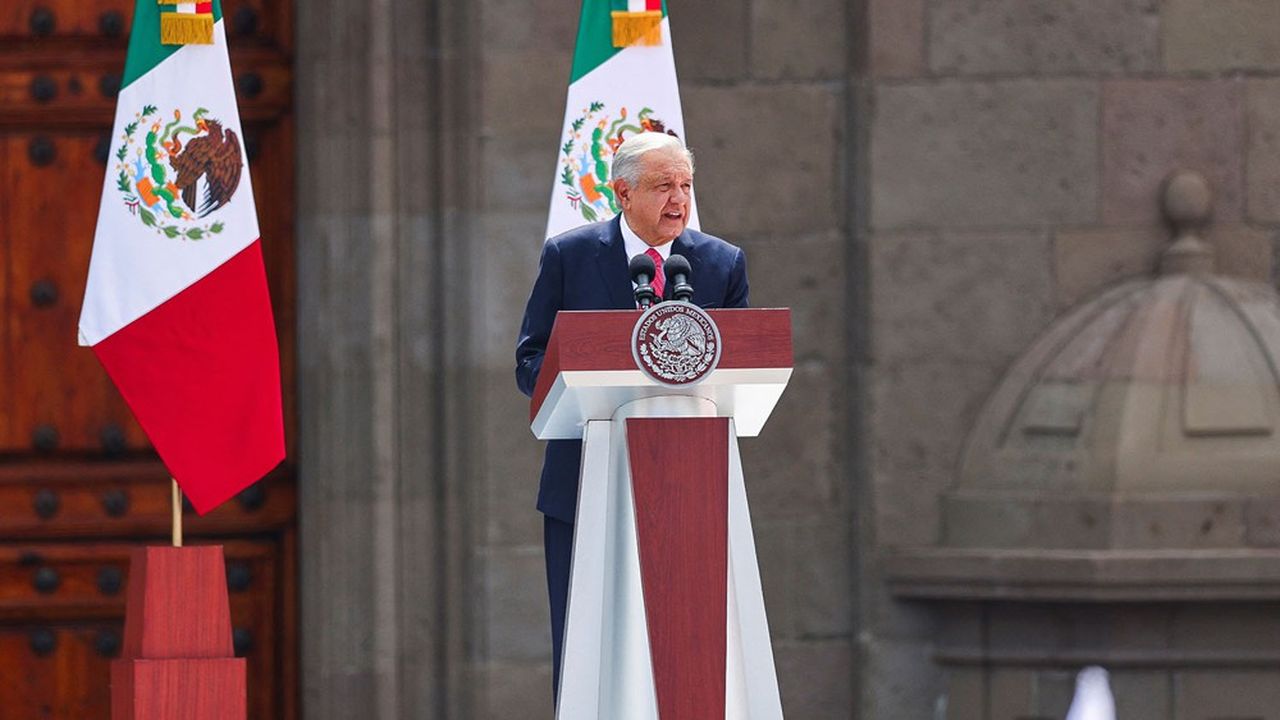
Facing the Mexican Senate, which is being built in the middle of the famous Reforma Avenue, thousands of law students and legal professionals on an unlimited strike for ten days are demanding to be heard. These demonstrators are opposing a bill aimed at restructuring the judiciary in Mexico. Luis, a lawyer practicing in the Federal Courts in Mexico City, denounces “a whim of the president.” Brandishing his placard, he specifies that he is not politicized but asserts that the government is seeking to “dismantle justice and its counter-power.”
Undermined by corruption, the Mexican justice system is failing with an impunity rate that exceeds 90% according to the NGO Zero Impunity. The reform proposed by the current government provides for a complete overhaul of the Mexican judicial system. The controversy is centered around one proposal: the election by ballot of all local and federal magistrates by direct suffrage starting next year. This way of appointing judges on the Bolivian model makes opponents fear the appointment of poorly prepared magistrates to high positions and their subjugation to politicians, causing “the loss of independence of the judiciary” in the face of the executive.
Controversial bills
Desired and announced for months by the outgoing Mexican president Andrés Manuel López Obrador (known as AMLO), this reform, which involves a change to the Mexican constitution, is the first in a package of controversial bills pushed by the executive before his departure. The others concern the electoral system, the security entrusted to the National Guard, or the disappearance of certain public agencies such as the National Institute of Transparency and Access to Information (INAI), the National Council for the Evaluation of Policy (Coneval) responsible for measuring the evolution of poverty in the country, or the Federal Competition Commission (Cofece).
This is a busy schedule for the last month of the presidential mandate before Claudia Sheinbaum takes power on March 1.er October, but AMLO waited for the right moment. According to the final count of the National Electoral Institute published at the end of August, the coalition of the outgoing president obtained 364 seats out of 500 in Parliament and 83 out of 128 in the Senate in the last general elections last June. This gives him a more than favorable context: the judicial reform discussed by the deputies in these first days after the return to school has a good chance of being adopted.
A danger to democracy
Although supported by Mexico’s next president, elected on a platform of continuity, these reforms are an almost personal matter for AMLO, and Claudia Sheinbaum remains in the background. Mexico’s opposition political parties are inaudible, struggling to recover from the electoral debacle.
The dissenting voices come from abroad. The United Nations has disavowed the bill on judicial reform. The United States has also done so, through a statement from Ambassador to Mexico Ken Salazar. Salazar writes that the election of judges by popular vote represents “a significant risk” for Mexican democracy and that the debate over the bill could “threaten the historic trade relationship” that unites the two countries.
With this comment supported by Canada, the American ambassador risked a diplomatic incident, as Mexico is offended by any position deemed “interventionist” by a foreign state. The Mexican government has closed itself to dialogue. Neither its neighbor nor the warnings from banking institutions make it waver.
Financial circles are worried
In recent weeks, several banks such as JP Morgan, BBVA and Citibanamex have each expressed their concerns about the upcoming bills and the concentration of power that is emerging around Morena, the president’s party. “We did not expect such a strong victory with an absolute majority in both houses of parliament,” explains Luis Gonzali, an analyst and director of the Franklin Templeton investment fund in Mexico. According to him, “the markets were hoping for a less aggressive policy, the noise around the reform has generated a lot of nervousness.”
Result: investors are increasingly fearful and the Mexican peso’s fall is accentuated. Valued at 16.57 to the dollar a few days before the elections, the “superpeso” collapsed and ended at 19.79 to the dollar on September 2. Like most experts, Gonzali predicts that the instability of the markets will last “at least until the American elections.” According to him, the time for foreign investors to have “more visibility as to what will happen tomorrow in Mexico.”




